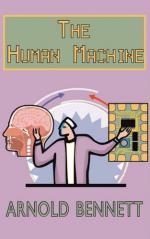It is remarkable that, though no enterprise could possibly present more diverse and changeful excitements than the mastering of the brain, the second great danger which threatens its ultimate success is nothing but a mere drying-up of enthusiasm for it! One would have thought that in an affair which concerned him so nearly, in an affair whose results might be in a very strict sense vital to him, in an affair upon which his happiness and misery might certainly turn, a man would not weary from sheer tedium. Nevertheless, it is so. Again and again I have noticed the abandonment, temporary or permanent, of this mighty and thrilling enterprise from simple lack of interest. And I imagine that, in practically all cases save those in which an exceptional original force of will renders the enterprise scarcely necessary, the interest in it will languish unless it is regularly nourished from without. Now, the interest in it cannot be nourished from without by means of conversation with other brain-tamers. There are certain things which may not be discussed by sanely organised people; and this is one. The affair is too intimate, and it is also too moral. Even after only a few minutes’ vocalisation on this subject a deadly infection seems to creep into the air—the infection of priggishness. (Or am I mistaken, and do I fancy this horror? No; I cannot believe that I am mistaken.)
Hence the nourishment must be obtained by reading; a little reading every day. I suppose there are some thousands of authors who have written with more or less sincerity on the management of the human machine. But the two which, for me, stand out easily above all the rest are Marcus Aurelius Antoninus and Epictetus. Not much has been discovered since their time. ’The perfecting of life is a power residing in the soul,’ wrote Marcus Aurelius in the ninth book of To Himself, over seventeen hundred years ago. Marcus Aurelius is assuredly regarded as the greatest of writers in the human machine school, and not to read him daily is considered by many to be a bad habit. As a confession his work stands alone. But as a practical ‘Bradshaw’ of existence, I would put the discourses of Epictetus before M. Aurelius. Epictetus is grosser; he will call you a blockhead as soon as look at you; he is witty, he is even humorous, and he never wanders far away from the incidents of daily life. He is brimming over with actuality for readers of the year 1908. He was a freed slave. M. Aurelius was an emperor, and he had the morbidity from which all emperors must suffer. A finer soul than Epictetus, he is not, in my view, so useful a companion. Not all of us can breathe freely in his atmosphere. Nevertheless, he is of course to be read, and re-read continually. When you have gone through Epictetus—a single page or paragraph per day, well masticated and digested, suffices—you can go through M. Aurelius, and then you can return to Epictetus, and so on, morning by morning, or night by night, till your life’s end. And they will conserve your interest in yourself.




